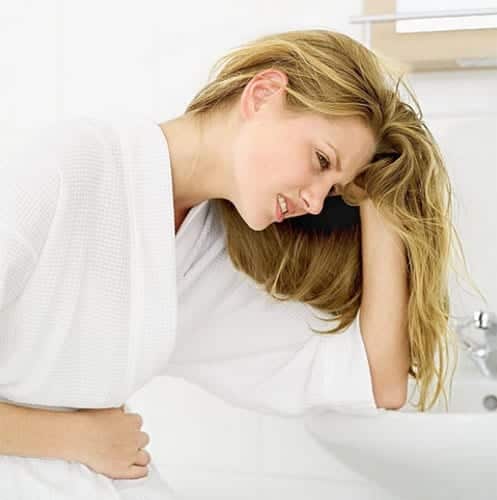PMS is common medical complaint, a chronic problem estimated to affect up to 80% of women. No one definitive cause of PMS has been identified, but several factors are known to influence symptoms. These include diet, genetics, hormone fluctuation, and that common culprit, stress.
Because PMS gives rise to both physical and psychological symptoms, stressful events in life and at work can make symptoms worse. Emotional symptoms of PMS affect the way you think, feel and respond and can give rise to a lower ability to cope with stress, irritability, feeling fed-up or even depression. Major physical symptoms of PMS include pain, aches and cramps.
For Both Body and Mind
By relaxing the body, massage promotes blood flow and releases endorphins, thereby significantly reducing emotional and psychological symptoms of PMS.
For physical complaints, massage can stimulate renewed energy and restore hormonal balance again by promoting blood circulation and lymph flow. Lymphatic massage is especially effective for addressing PMS-related bloating. Massage of swollen areas of your body can prevent the accumulation of fluid in the body and relieve abdominal bloating and edematous swelling.
Lastly, deep tissue massage promotes better sleep. Sleep resets the balance of neurotransmitters in the brain, helping the body repair and renew itself, while improving memory, mental focus and cognitive performance.
What We Know
While more research is needed to determine more exactly the causes of PMS and the efficacy of massage as treatment, much has already been established. A study published in the Journal of Psychosomatic Obstetrics and Gynecology investigated a variety of therapies for PMS symptoms.
For this study, researchers from the Touch Research Institute in the University of Miami School of Medicine recruited 24 women aged 19 – 45 years and suffering from PMDD (premenstrual dysphoric disorder).
The women were randomly assigned to either massage therapy or relaxation techniques (breathing, stretching and yoga-like exercises etc.).
The results supported massage therapy as effective treatment:
“The massage group showed decreases in anxiety, depressed mood and pain immediately after the first and last massage sessions. The longer term (5 weeks) effects of massage therapy included a reduction in pain and water retention and overall menstrual distress.”
While human touch can provide needed intimacy for women who are going through the emotional rollercoaster of PMS, massage therapy does not have to be given by a massage therapist. A premium massage chair, readily available in your home can offer healing treatment as well. A massage chair will stimulate better blood circulation and lymph flow, allow the release of endorphins, and promote relaxation and better sleep.
Just about any of our massage chairs can provide some relief depending on whether you like a soft and gentle touch or a deep tissue therapeutic chair.
Check out the best 2022 massage chair models.
“Massage Therapy for PMS.” Massage Therapy for PMS – ProgressiveHealth.com, www.progressivehealth.com/a-great-alternative-solution-for-pms.htm.
Hernandez-Reif, M, et al. “Massage and Premenstrual Syndrome.” Touch Research Institute, 2000, www6.miami.edu/touch-research/AdultMassage.html.
“What Is PMS?” What Is PMS? What Causes It and What Are the Symptoms?, A.Vogel, www.avogel.co.uk/health/pms/what-is-pms/.
Hernandez-Reif, M, and A Martinez. “Premenstrual Symptoms Are Relieved by Massage Therapy.” Taylor and Francis Online, 7 July 2009, www.tandfonline.com/doi/abs/10.3109/01674820009075603?journalCode=ipob20&.


